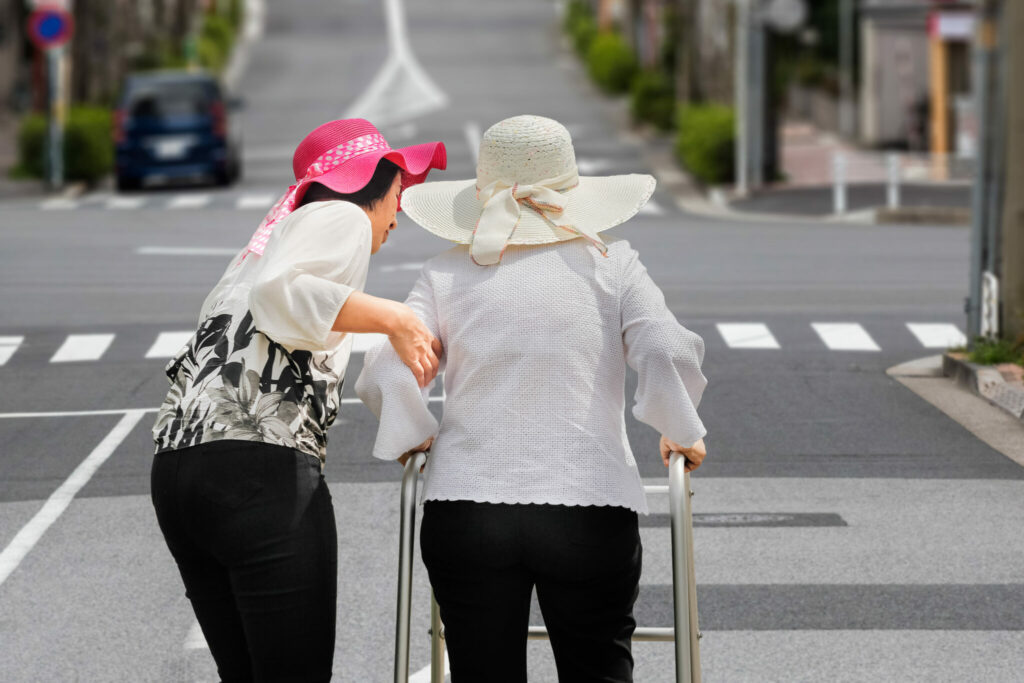In Japan, the wisdom, warmth, and experience of a grandmother can now come to your home… simply by making a reservation.

- In Japan, the “OK Obaachan” service allows people to hire grandmothers aged 60 to 94 for cooking, advice, help, or companionship.
- Created in 2011, it provides additional income for seniors who are often in precarious situations and combats loneliness.
- Approximately 100 grandmothers are registered, with a rate of 3,300 yen per hour, plus travel expenses.
- Services range from passing on skills to providing support during events or difficult situations.
- This concept illustrates a humane and innovative response to the challenges of aging and isolation in Japan.
OK Obaachan: A unique service
The OK Obaachan service, literally OK Grandmother, employs women aged 60 to 94 for a wide range of tasks: traditional cooking, homework help, attentive listening, life advice, accompanying clients to events, and even providing support in emotionally delicate situations.
Launched in 2011 by Client Partners, a company providing “home services for women” that employs only women, this service addresses two major issues: providing additional income to seniors who are often economically vulnerable, and creating human connections in an aging society facing loneliness.
A response to the precarious situation of Japanese seniors
According to the Japan Statistics Bureau, nearly a quarter of people over the age of 65 remain active, representing approximately 9.3 million people. For many older women, retirement pensions are insufficient: careers interrupted to raise children, part-time jobs, or a lack of regular contributions significantly reduce retirement income.
At Client Partners, around 100 “grandmothers” are registered with the OK Obaachan program. The rate is set at 3,300 yen per hour (approximately €22), plus travel expenses.
For some, such as 69-year-old Taeko Kaji, this activity is a real breath of fresh air: “I never get bored. I have the opportunity to go out, meet people, and it gives meaning to my life.”

OK Obaachan: A grandmother for every occasion
While cooking is one of the most requested services, learning how to make miso soup or gyozas, the range of services is wide. Grandmothers can:
- babysit
- pass on traditional skills
- teach calligraphy
- write letters by hand with a beautiful pen
- manage family conflicts
- accompany clients to important events
Some assignments are more unusual: being present during a coming-out to support the person facing their family, assisting with a breakup, or even replacing an absent loved one at a child’s wedding or sports game.
Much more than just a grandmother
This service meets two major needs: providing elderly women with a source of income and a sense of social usefulness, while offering a warm presence to those who live far from their families or suffer from isolation.
Client Partners stands out by reserving its services for women, thereby valuing the skills traditionally associated with the maternal and family role. Other similar services exist in Japan, such as the rental of older men, but the “grandmother formula” has been particularly well received.

Mixed reactions
On social media, the concept has been met with both enthusiasm and reservations. Some praise it as a brilliant idea that responds to a real need to feel useful. Others say they feel uncomfortable with the idea of “renting” human beings or question the reliability of the caregivers.
A humane response to the challenges of Japan’s aging population
More broadly, this trend illustrates how Japanese society is adapting to demographic changes, where maintaining human connections and reinventing work for seniors are becoming increasingly important. By offering rewarding work to older women and valuable assistance to the most isolated, the “OK Obaachan” service symbolizes an innovative and humane response to the economic and social challenges of contemporary Japan, provided that this solution does not become a fragile palliative in the absence of genuine public policies to support the elderly and combat loneliness.
Published by the Editorial Staff on
